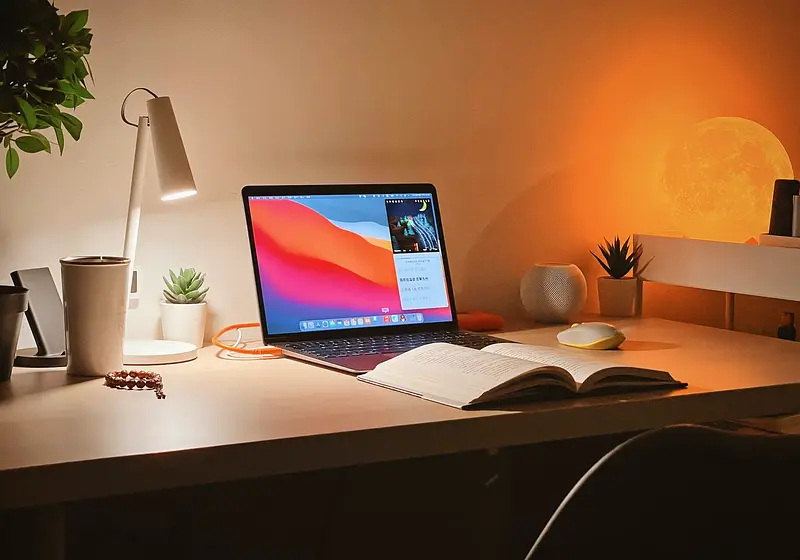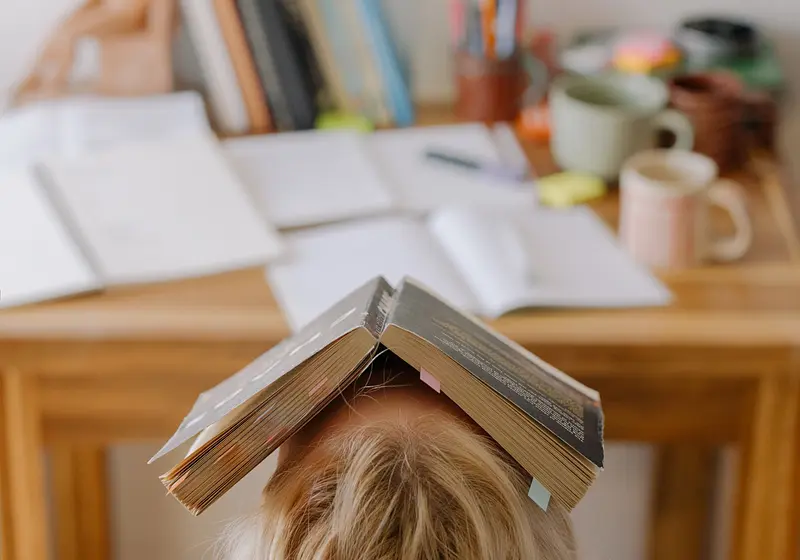A common phrase many high school students religiously abide by is "if it isn't the due date, it's not due." While this phrase lets us put off our schoolwork and worry for our future selves, it leads to us in a panicked mania at 4 am, high on caffeine and questioning how important this one assignment is. But fear not! While the premise of the all-nighter sounds dreadful, here are 15 tips (for various academic endeavours) that should help you soar through it.
Let us slide into your dms 🥰
Get notified of top trending articles like this one every week! (we won't spam you)Tips For Studying and Revising:
1. Only focus on the essentials
Chances are most curriculums have a specific syllabus with major key points to memorize. If you have less than 24 hours, I suggest you make this syllabus your Bible and abide by its terms to give yourself a summary of what you should know. Plus, if you know syllabus information, you're guaranteed to ace at least 60% of your test as you're already provided with a basic overview of the entire chapter.
2. Find flashcards on Quizlet
*photo taken from Quizlet website
While there's no such thing as a free lunch, there is certainly a free Quizlet website available for all! An effective revision technique to test your knowledge is to use these flashcards to revise your concepts. Due to their interactive features and different question styles, it also allows you to focus on what you are weakest at and work towards building a solid foundation for those concepts.
3. Look at mark scheme questions
*photo taken from exam-mate website
If you're really in a time crunch, then this is the tip I sincerely abide by. Sites like XtremePapers, PapaCambridge, and exam-mate have a plethora of paper questions from different boards. In other words, they're the holy grail of past papers.
I would typically recommend A-level questions as they offer the most rigour and the mark schemes serve as good key points. This could also give you a good idea of what to expect from your tests the next day, as questions are usually subject to repetition.
4. Use YouTube to maximum efficiency
YouTube channels such as Crash Course, Professor Dave Explains, and the Organic Chemistry Tutor have extremely helpful and digestible bits of information to help you with any topic you need to know for your tests. Their explanation tactics also come accompanied by summary terms and examples, to help you reinforce concepts that you should know.
It is also productive if you jot notes down while learning, as this will help you retain the information in a more concrete manner. I highly suggest you start studying by referring to YouTube videos, as it's scientifically proven that many people are better visual learners than written ones.
5. Make a mind map/summary sheet of concepts you are doubtful of
This is by far the most crucial step of them all, as this will ensure that you have something to look over again and again. The more often you read these sheets, the more the concepts on them will be reinforced in your mind. Plus, making a mind map could be a good way to test how much you retained while studying and you could fill in the information you missed in a red pen so you are not likely to forget it. Another amazing benefit of mind maps is that you now have your own personal revision guide created to revise on the drive or walk to school!
6. Have a diagram/formula/definition sheet ready
These small fragments of information are important, as you will be able to acquire some marks if these terms are drilled better into your head. It's a good idea to start your studying regime by doing this. This could also help you revise your important key terms faster.
7. Read through your textbook at the end to brief yourself on all that you have learned the night before.
After all is said and done and the hard work has been put in, the best way to end your all-nighter would be to skim through the textbook to make sure you haven't missed out on anything. You could also test yourself to see how much of your knowledge aligns with what's been printed out in the textbook.

Take the Quiz: Which college major suits you?
Find out which college major aligns perfectly with your passions, strengths, and future dreams!
Tips If You Have a Paper or Lab Assessment Due:
1. Make a bullet list of all the things that need to be included in your report.
This is an extremely crucial tip as this will help you narrow down what you need to focus on and research. This also provides a starting point for how you're going to conduct your research, and I've often found that listing things down and narrowing everything down can really help you feel much more organized and way less overwhelmed.
2. Look up sample reports/papers similar to your topic.
This will help you draft an outline and underline crucial points that should be mentioned in your paper. It also helps you prioritize what you should research first and you can generate a rough idea for your report structure.
3. Use Quillbot to paraphrase your text.
*photo taken from Quillbot website
Quillbot is an absolute lifesaver when it comes to paraphrasing, and has a feature that allows you to add more intricate word choices to your texts for any added flair (or if you really need to meet that word count).
Tips to Take Care of Yourself While Pulling an All-Nighter:
Seriously, there is no point in putting so much effort into studying if you aren't mentally well-rested to give your exam.
1. Hydrate, hydrate, hydrate!
Make sure to give yourself enough time to drink plenty of water to replenish your body with this essential fluid. Water will also keep your mind awake and give it enough vitamins to help you through the big test tomorrow. Water is absolutely essential to the success of an all-nighter as this water is what keeps you awake and your mind functioning throughout the test.
2. Have a bulk of energy sources present
Ranging from coffee to Redbull, the list of energy-fueling confectioneries is endless. While bad for your health, I would recommend consuming them (once in a while) to sharpen your focus and help you stay awake all night. It could also serve as a reward system if you feel overwhelmed with your work.
3. Give yourself breaks!
A well-rested mind is perhaps the most preparation you can do for a test. Try to get as much sleep as possible, and if not, make sure to give yourself time to stretch or walk around your study room to give yourself a break.
Tips to Minimize Distractions:
1. Keep all your devices in another room or away from you.
While our phones can seem like the best break from academics for us, the difference between two minutes of scrolling and two hours of scrolling is blurry for most of us. Thus, more productivity can be achieved if other devices were kept at bay.
2. Study in a minimalist environment (sorry, no beds).
While most people find it comforting to study in their beds, the option of just flunking the exam seems much more viable when surrounded by comfy pillows and plush blankets. The key to not getting distracted is to stimulate yourself in an environment that has barely any tangible distractions that can sway your attention away. It's best to study in a study room or dining table with just your laptop, a pencil case, and a notebook.
Even though all-nighters can be draining and exhausting, hopefully, these tips can make the experience easier for you. If not, at least the motivation to study a week in advance will. All the best and happy studying!

















